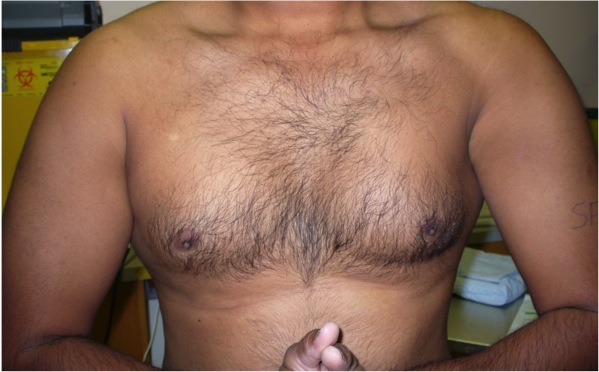Epidemiology
Men aged 20 - 40
Aetiology
Usually occurs in gym
Bench press
Increased risk with steroid use / growth hormone
Bodendorfer et al Orthop J Sports Med 2020
- systematic review of 23 papers and 664 injuries
- all male, average age 31
- 63% occurred during weight training
Anatomy
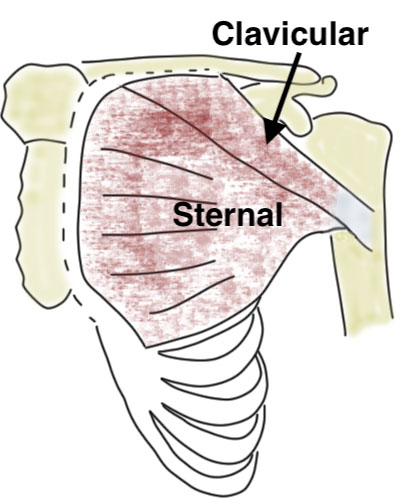
Clavicular head
- attaches: medial clavicle and upper sternum
- inserts: lowermost aspect of bicipital groove
Sternal head
- sternum, aponeurosis external oblique and costal cartilages of first 6 ribs
- inserts at uppermost aspect of bicipital groove
2 tendons converge and rotate 90o
- insert lateral to bicipital groove
- superior fibres insert inferiorly and vice versa
Tendon is composed of two lamina
- anterior lamina is clavicular head
- posterior lamina is sternal head
Nerve supply
Lateral pectoral nerve C5-7
- clavicular head
- part of sternal head
Medial pectoral nerve C8-T1
- sternal head
- passes through and supplies pec minor
Actions
Powerful adductor, flexor and internal rotator
History
Usually recall significant incident
- tearing sensation
- may hear a pop
- often severe swelling and bruising
Only later when it settles is the cosmetic and functional deficiency apparent
Examination
Significant bruising in the acute phase
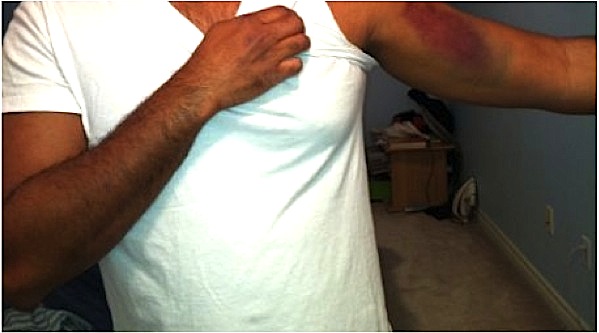
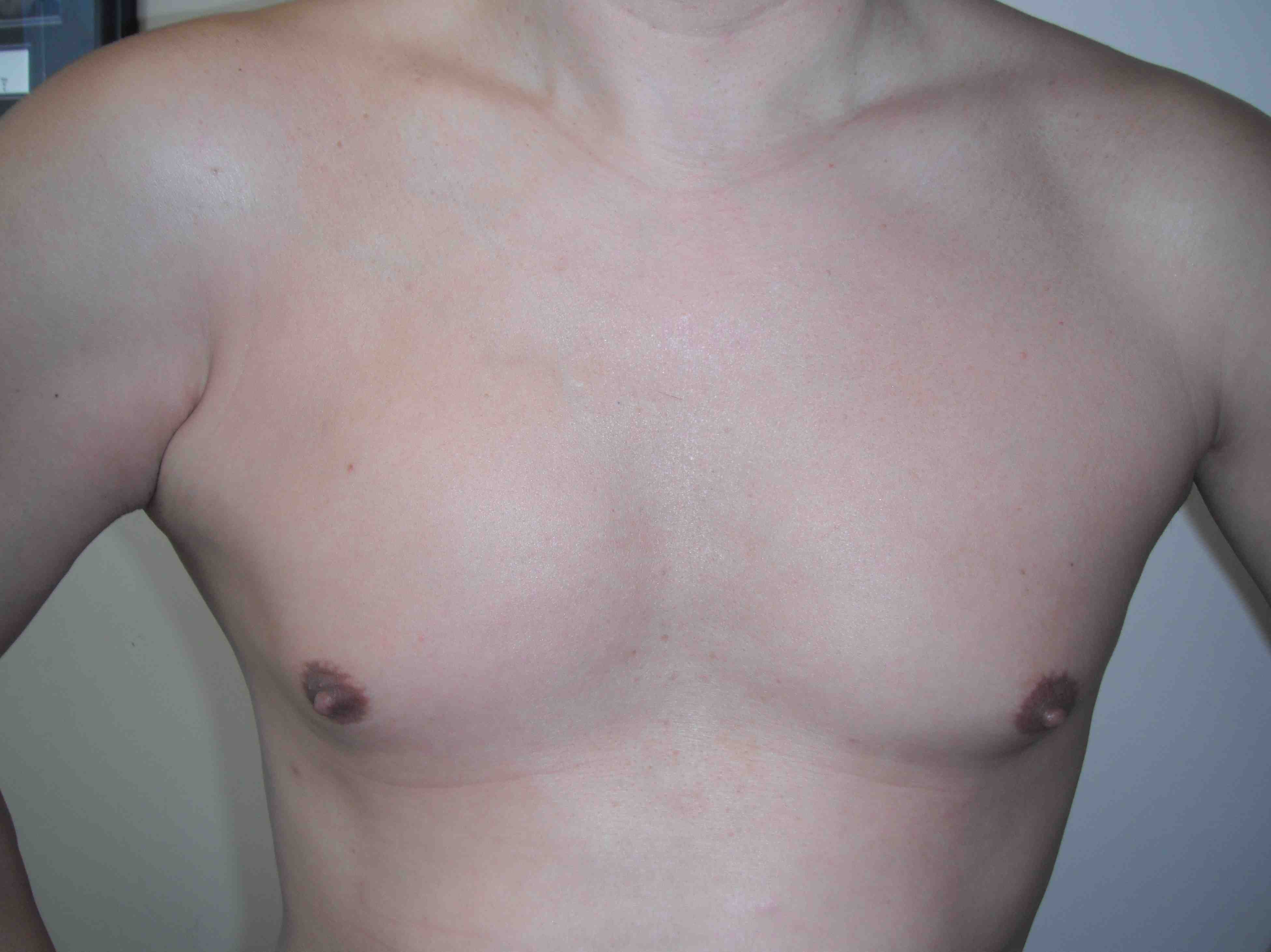
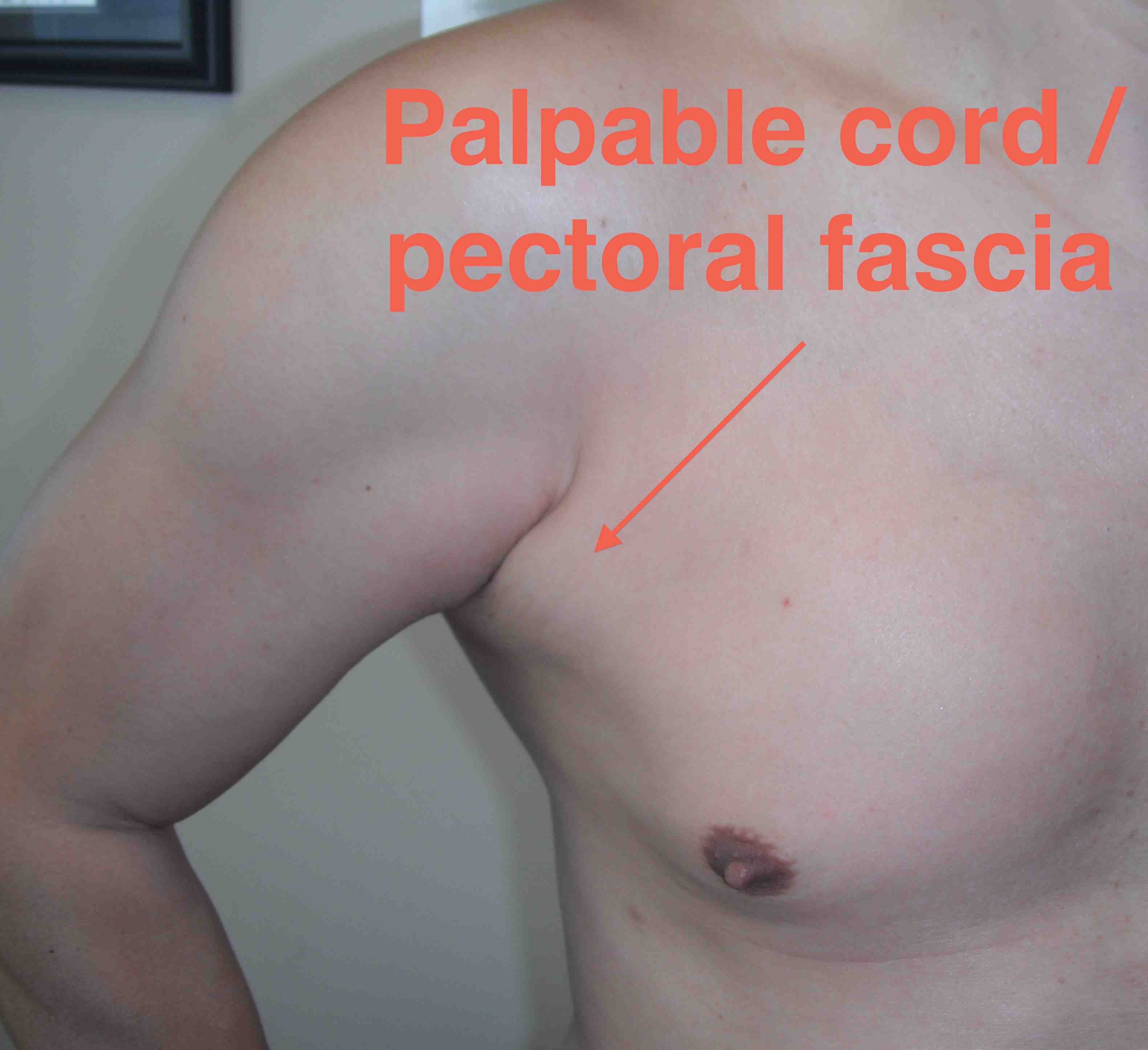
Asymmetry of chest wall
Frequently palpable cord present
- is pectoral fascia still attached to antebrachial fascia
- not to be mistaken for pectoralis tendon
- prevents full retraction
In chronic setting, ask patient to adduct against hip / resistance
Usually complain of weakness, mainly in gym
MRI
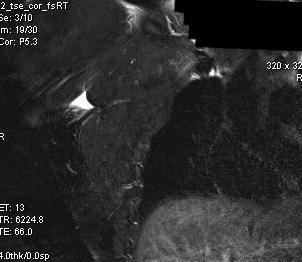
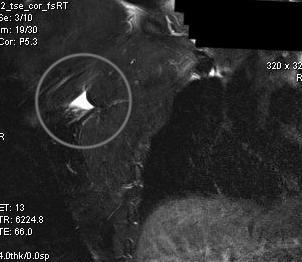
Coronal T2 MRI Right shoulder
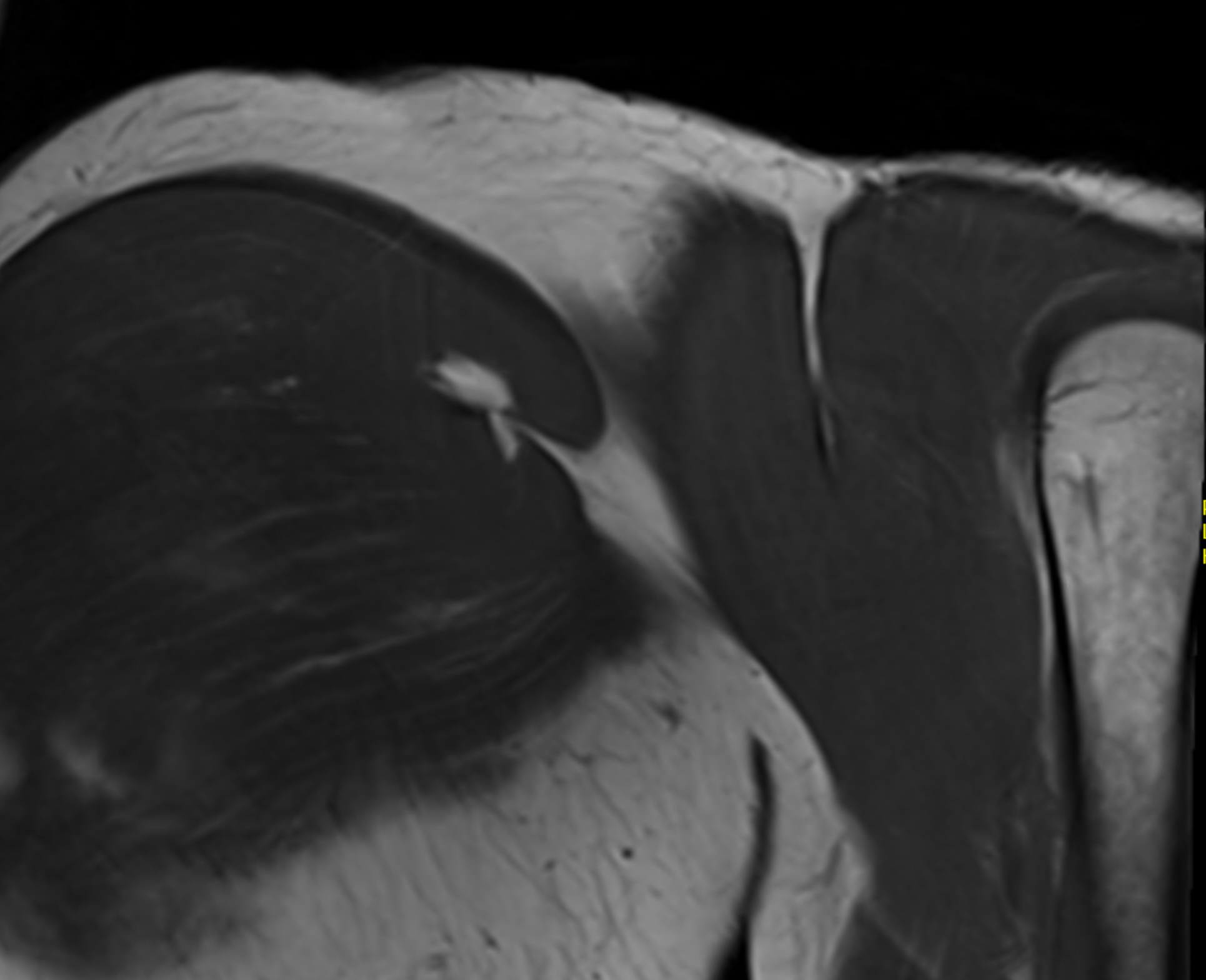
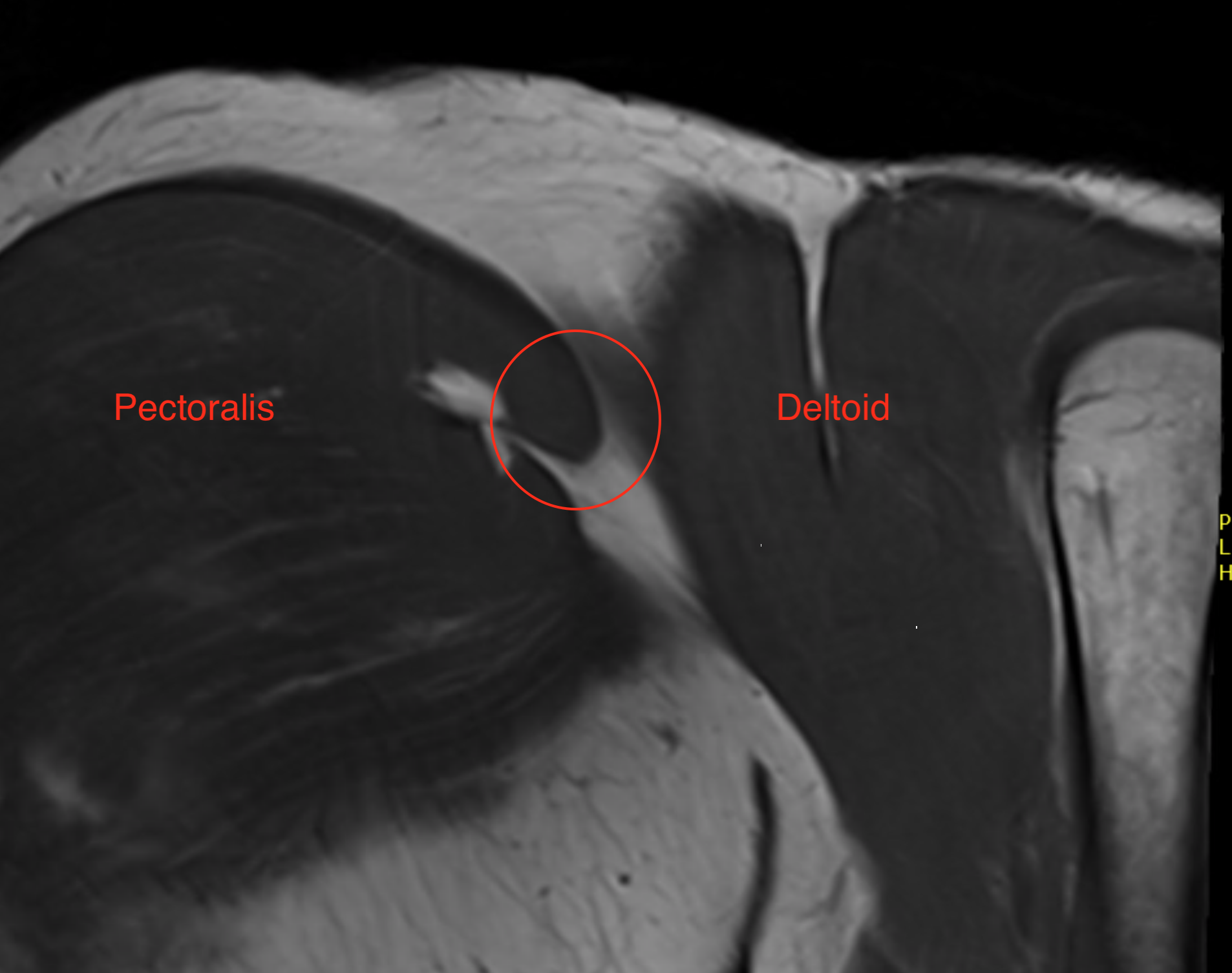
Coronal T1 MRI Left shoulder
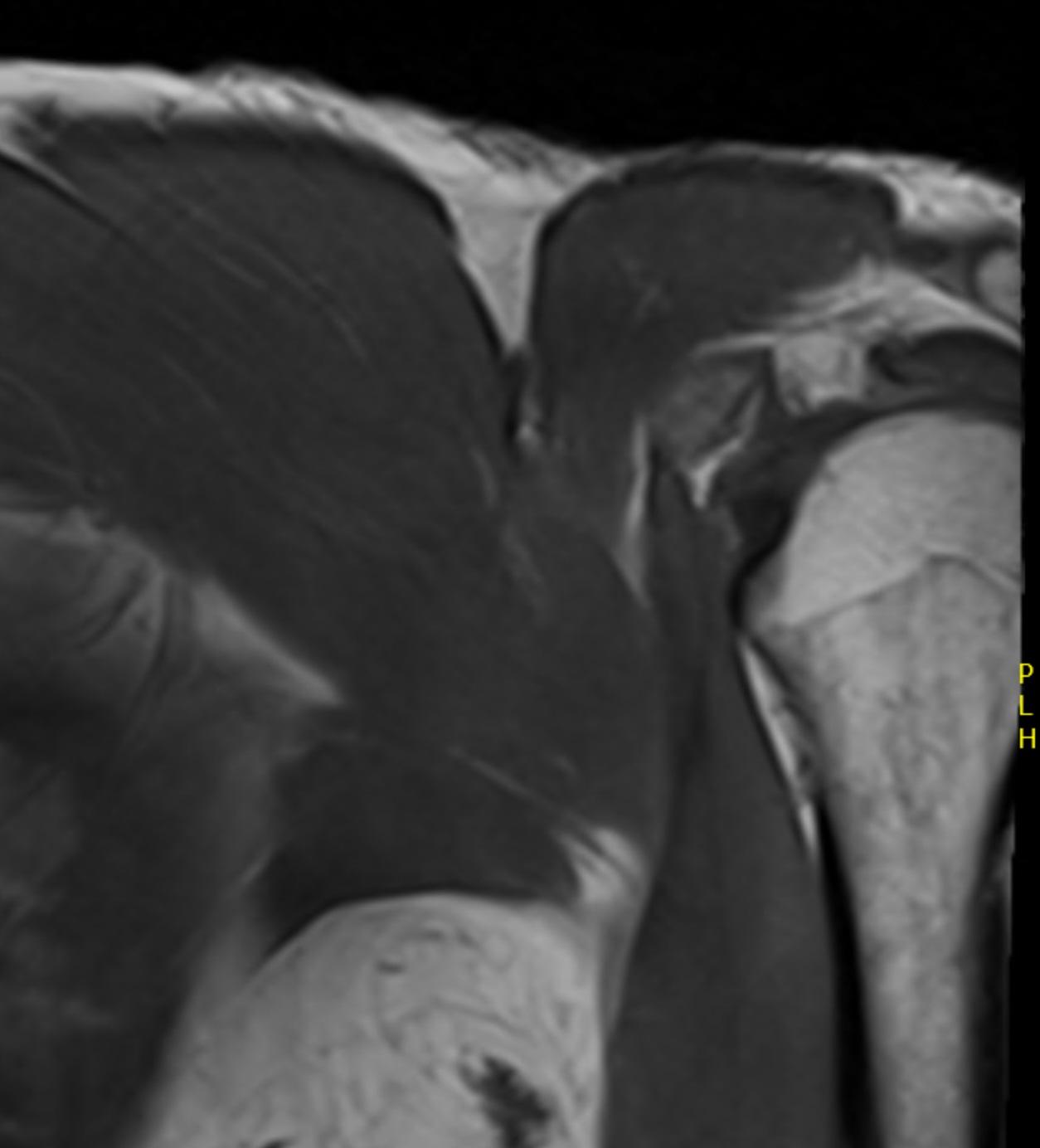
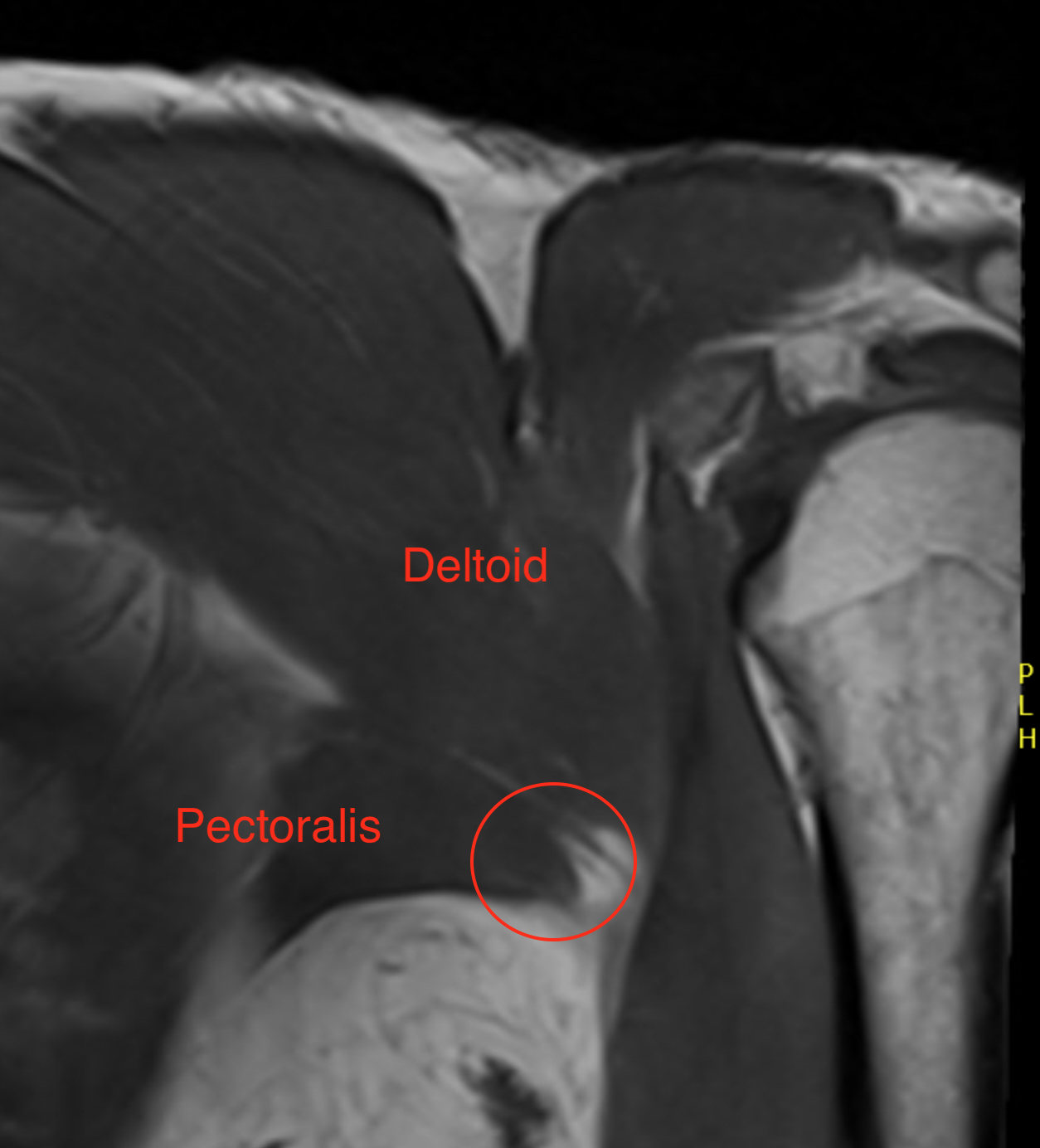
Coronal T1 MRI Left shoulder
Types
Bony avulsion
Tendon avulsion
Isolated clavicular or sternal head tears
Musculotendinous tears
Musculotendinous tears
Avulsion of muscle off tendon at musculotendinous junciton
- not amenable to suture repair
- need allograft reconstruction
Synovec et al Orthop J Sports Med 2020
- MRI study of 72 patients
- 75% sensitive and 80% specific for musculotendinous tears
Management
Non operative
Elderly / low function
Chronic setting
Bodendorfer et al Orthop J Sports Med 2020
- systematic review of operative versus nonoperative treatment
- operative treatment superior in functional outcomes / strength / cosmesis
Operative
Indications
Acute tears in young patients
Cosmesis i.e. body builders
Acute repair
Options
- suture anchor
- cortical anchor
- bone trough
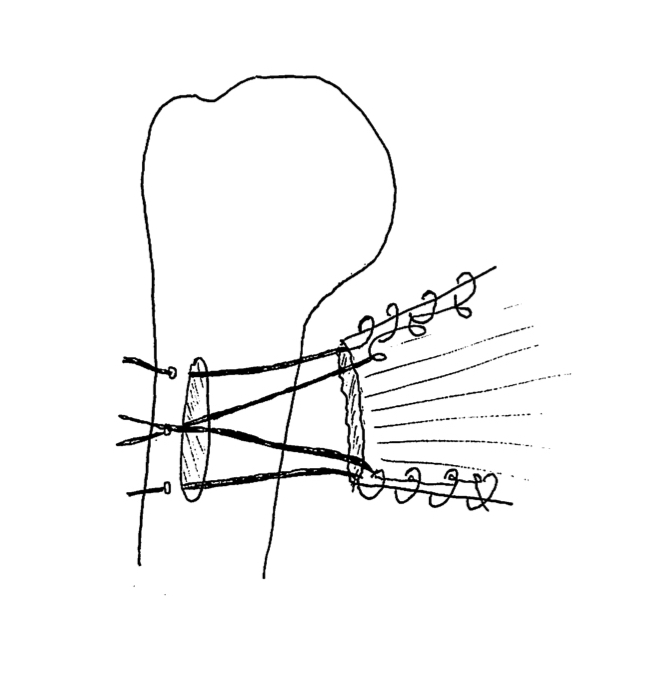
Axillary incision right shoulder
Bone Trough Technique
Beach chair
- deltopectoral approach
- can also make incision in axillary skin crease
- find pectoralis major tendons medially
- Krackow with high strength sutures
- place Hohmann retractor under deltoid to expose humerus
- identify long head of biceps
- can usually identify previous pectoralis major insertion
- drill one inch trough in humerus lateral to long head of biceps
- make drill holes with 2 mm drill lateral to trough
- use suture passer to pass sutures into trough and out lateral drill holes
- pull tendon into trough and tie sutures
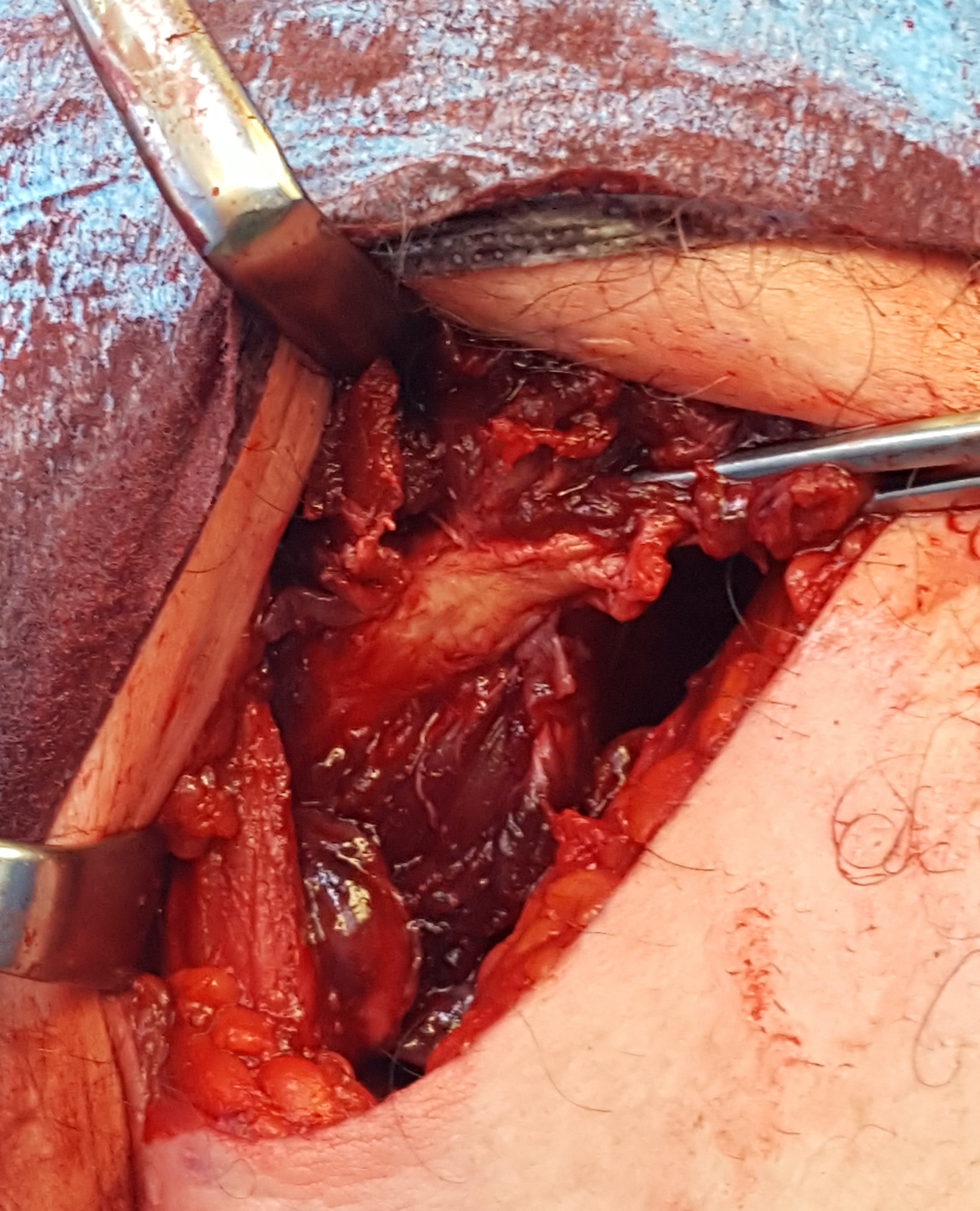
Axillary crease incision in right shoulder, with Kocher forceps on the torn pectoralis major tendon
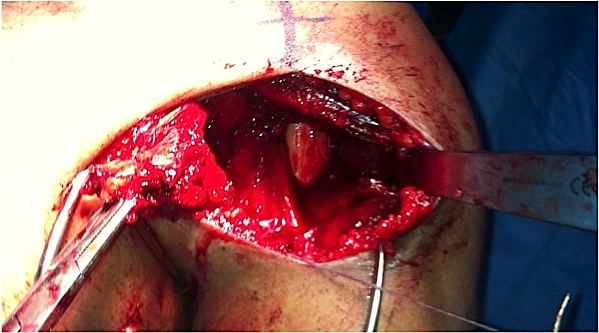
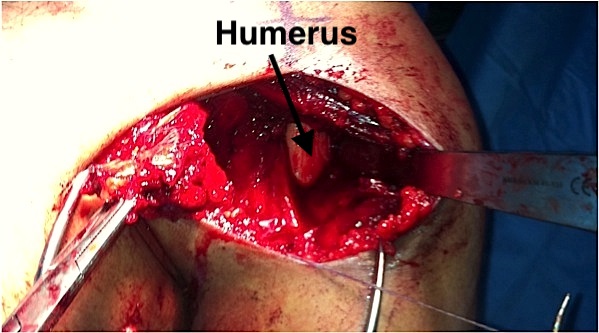
Right shoulder, with Hohmann retractor exposing humerus
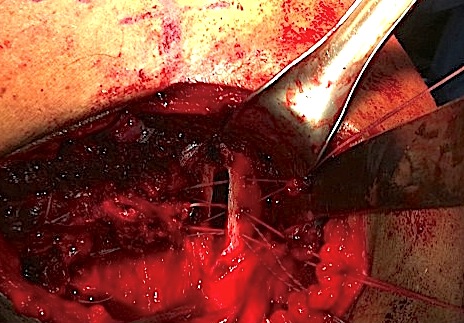
Bone trough with sutures passed through lateral drill holes
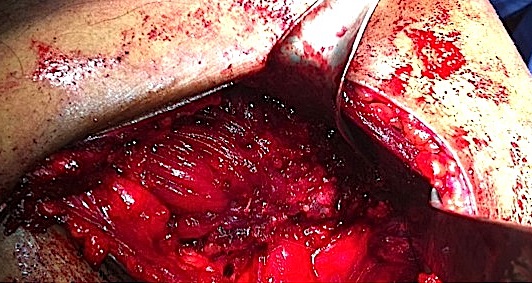
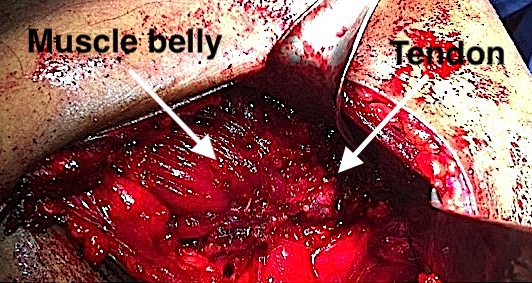
Completed repair
Cortical button technique
Arthrex surgical technique video pectoralis major
Arthrex surgical technique repair with cortical button
Vumedi pectoralis major repair with cortical button
Results
Bodendorfer et al Am J Sports Med 2020
- systematic review of operative repair
- no difference between different surgical techniques
- acute repair superior to chronic repair
Bodendorfer et al Orthop J Sports Med 2020
- systematic review of operative v nonoperative treatment
- complication rate 14%
- infection <1%
- DVT < 1%
- re-rupture 3%
- persistent pain 3%
Balazs et al Am J Sports Med 2016
- 214 military patients undergoing surgery
- at 12 months, 95% return to active duty
Chronic Reconstruction of Pectoralis Major tendon
Technique
Surgical technique video allograft reconstruction
Tendoachilles graft with bone block cut off
- pass through allograft tendon through muscle in pul ve taft method
- tie down into bone trough in humerus as per usual technique
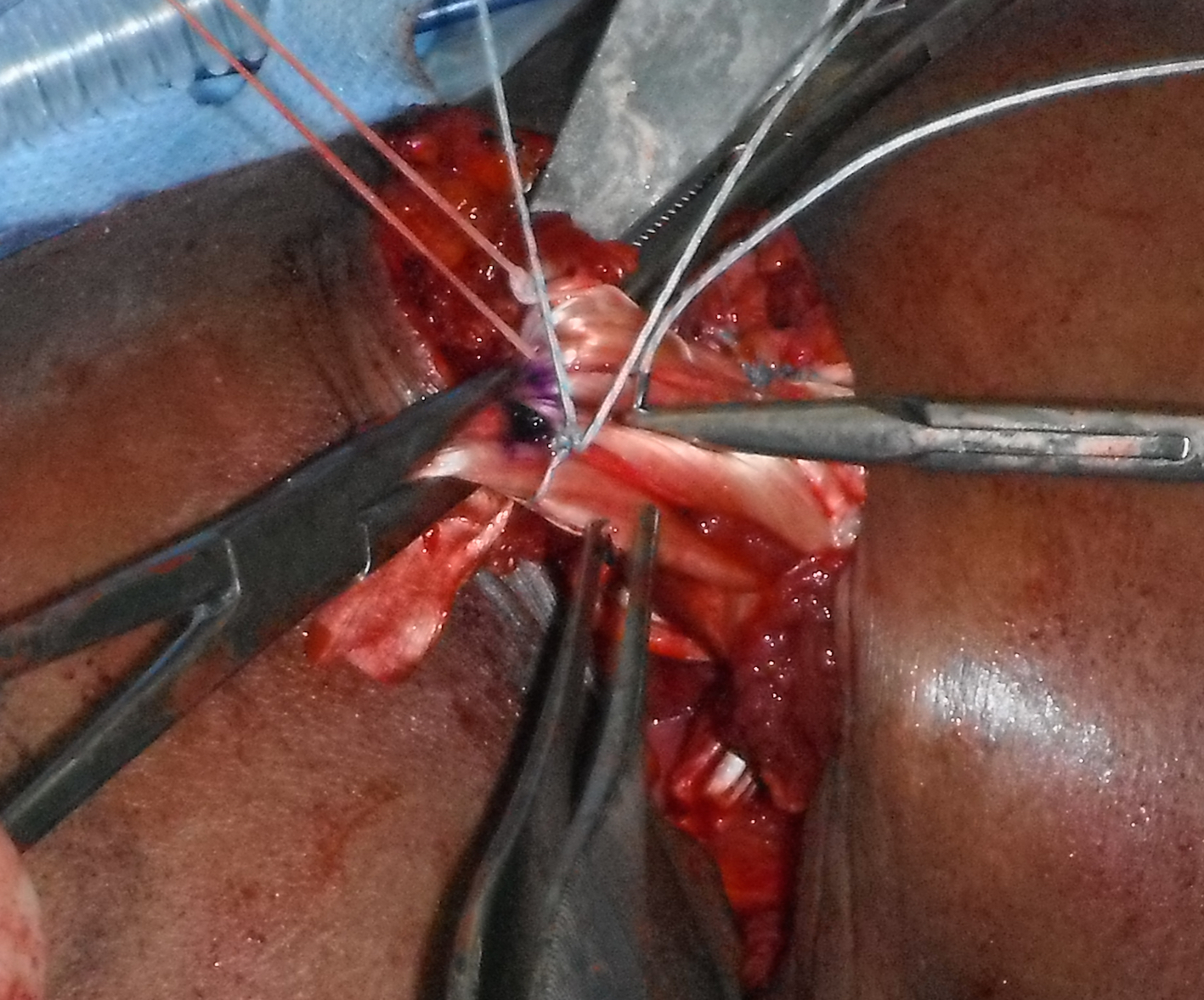
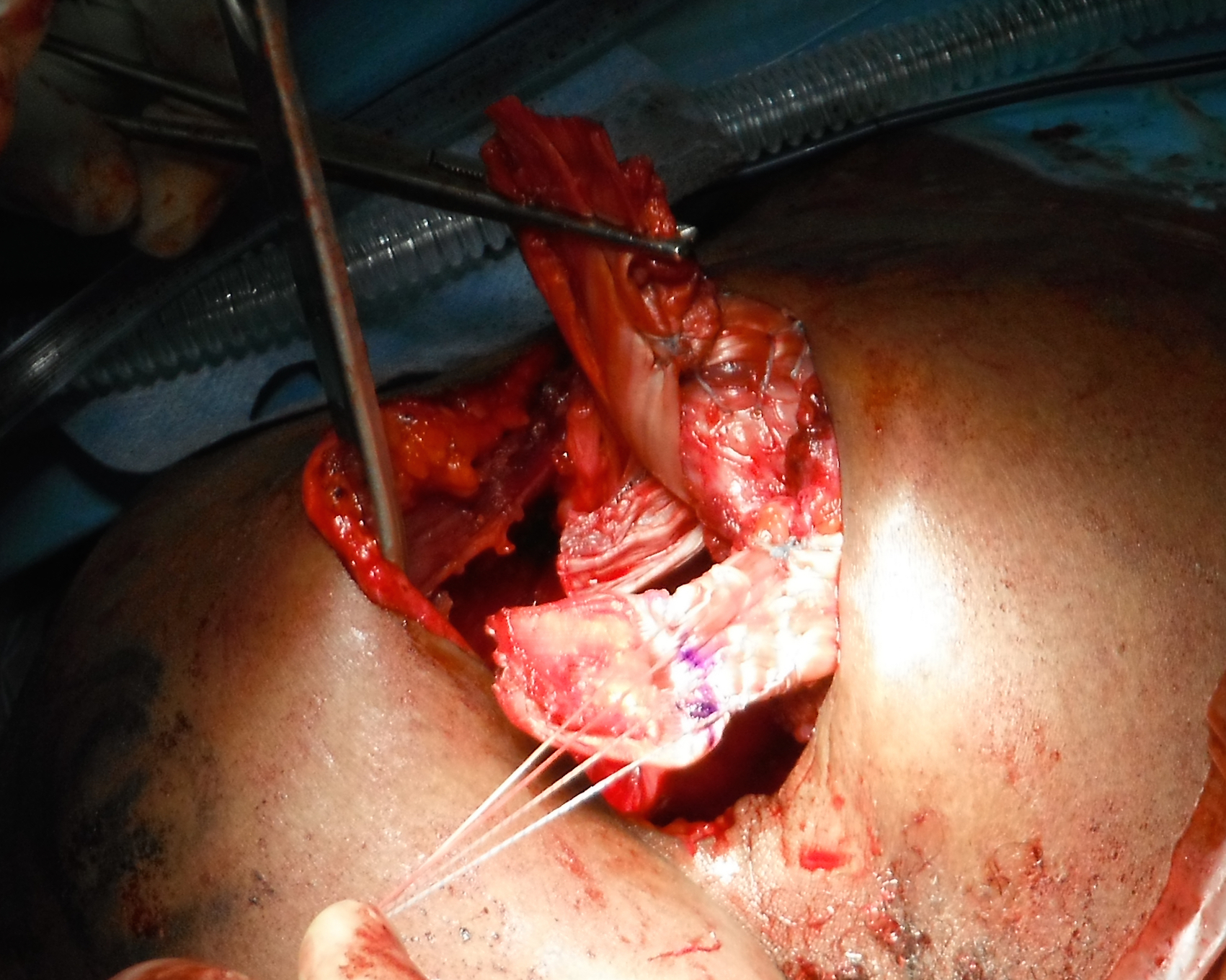
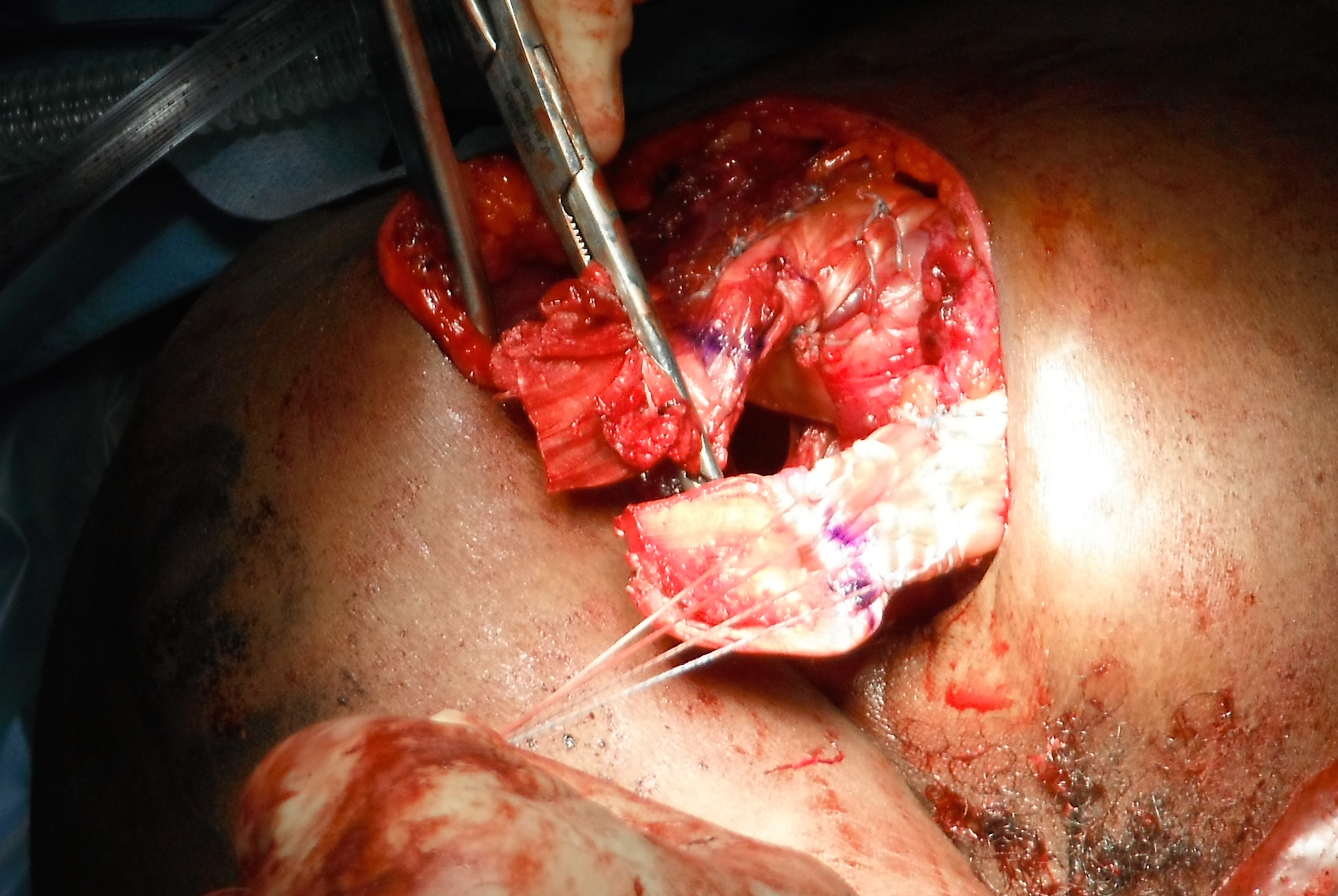
Right shoulder. Allograft has been passed through sternal and clavicular muscle bellies and is being sutured back onto itself
- 9 military patients requiring allograft reconstruction
- 5/9 had good or excellent results

